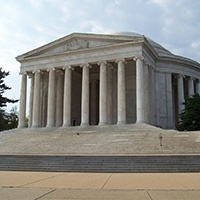Leighton White Collar Crime Lawyer, Alabama
Sponsored Law Firm
-
 x
x

Click For More Info:
-
The Law Offices of Richard L. Cooper, P.A.
848 Brickell Avenue Suite 800 Miami, FL 33131» view mapDWI/DUI, Drug Trafficking, Felony Nationally Ranked Top 40 Under 40
With Richard L. Cooper you can expect a trusted confidant who will work diligently to fully understand your case and determine a road map to help you regain control of your life.
800-756-2781
Not enough matches for Leighton White Collar Crime lawyer.
Below are all Leighton Criminal lawyers.
James Paul Atkinson
✓ VERIFIEDAccident & Injury, Divorce & Family Law, Lawsuit & Dispute, Criminal
James Atkinson is a practicing lawyer in the state of Florence, AL.
Nathanial Pride Tompkins
Accident & Injury, Criminal, Divorce & Family Law, Estate, DUI-DWI
Status: In Good Standing Licensed: 57 Years
Lindsey Mussleman Davis
Divorce & Family Law, Accident & Injury, Criminal, Real Estate, Estate
Status: In Good Standing Licensed: 41 Years
James Elwyn Reese Irby
White Collar Crime, Criminal, Accident & Injury
Status: In Good Standing Licensed: 23 Years
Tyler Hamilton Brannon
Power of Attorney, Living Wills, DUI-DWI, Criminal
Status: In Good Standing Licensed: 12 Years

 Richard L. Cooper Miami, FL
Richard L. Cooper Miami, FL AboutMiami Attorney at Law
AboutMiami Attorney at Law ServicesCriminal Defense
ServicesCriminal Defense

